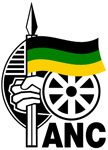
Without exception, the 100 years old Brand ANC needs to be repositioned ahead of the second century new challenges. For your information, it will not be napping for the first time. Former President Nelson Mandela writes in the Long Walk to Freedom that in 1943, a delegation of youth met the then ANC President Dr Xuma. At the meeting, "we told him that we intended to organise a Youth League and a campaign of action designed to mobilise mass support. We told him that the ANC was in a danger of becoming marginalised unless it stirred itself and took up new methods." In marketing term, this is called brand reposition.
When the African National Congress (ANC) was formed in Bloemfontein on 8 January 1912 as a broad church movement to deliver a non-racial and democratic South Africa, nobody knew that it would grow to become what some believe to be the world's greatest political brand. Today the ANC is a global brand icon and a formidable brand leader by a proverbial mile in the political space. Surviving and thriving as a brand for a century and beyond is an extraordinary and monumental achievement. Globalisation, political power shifts, economic downturns, changes in clients' needs, innovations in technology and many other factors have spelled the death for many brands. Yet there are few hundreds of global brands that manage to remain young and vital, well into their tenth decade and beyond. Think of giant brands like Kiwi polish, Coca-Cola, Jonnie Walker, Shell, Xerox, Guinness, Ford, Mercedes-Benz and a couple more. Strong brands don't die and can withstand the test of time. They just thrive on a solid reputation that is born out of a promise made and a promise delivered. Hence, all these brands are more than a century old, yet they continue to dominate their landscapes today. They just thrive on a solid reputation built in the past and preserved for the future through proper adaptation strategies driven by consistent brand reposition.
The ANC of the first century was about a principled and selfless struggle to end apartheid. That brand promise was delivered in 1994. And now the focus has shifted to the second level of the struggle - the struggle for economic freedom. Personal and regional wealth accumulation has turned the main attribute of the ANC brand. Hence leaders are looting government resources, communities are protesting for better resources in their areas, employees are striking for better incomes and business is pushing for more profit. The ANC politics has turned a "dog-eat-dog" space that has relegated the founding principles of selflessness, collectivism, discipline, sharing and respect to the periphery of the ANC brand. The ANC's struggle credentials are under a severe threat as a result of factionalism, loss of principles, internal power struggle and conflict, ill-discipline, disunity, assassinations, deteriorating respect, corruption and individualism. Simply put, the ANC politics has turned selfish, vacuous, vicious, and vitriolic. Political branding is a key to the ANC's long-term survival and political market leadership. Hence the need for the ANC rebranding ahead of the second century challenges.
The fact of the matter is that ANC's peers in the tenth decade brigade have managed brand repositioning as a strategic resource in their successful long life spans. Brands like Shell, Coca-Cola and Kellogg's are iconic, global in their status. Yet when you look at their market leadership over the decades, they had all changed even if it was in a more evolutionary sense over time, rather then radical overhauls. In a public opinion and perception dominated political space, brand ANC needs to be constantly evolving to ensure that it keeps abreast of changing needs of political consumers. ANC's head-on collision with its Youth League and dissenting voices by some of its top leaders have created confusion about the brand's architecture. The ANC therefore, needs re-branding and re-vitalisation that position the organisation as one brand with one constitution, one leader, one vision, one programme, one message and one membership. And this might call for an end of Women and Youth Leagues, and their presidents and mini-constitutions.
The current wave of service delivery protests against municipalities, labour actions and lately the Lonmin Marikana incident are challenging the ANC to reposition itself as a caring, sympathetic, responsible and a working class brand. In a fast-moving political environment with ever-growing demand for political solutions and aggressive political competition, ANC rebranding is a definite decision required to improve the offering to the political market in order to create a more compelling reason to citizens to always vote ANC, have confidence in the ANC-led government and to embrace its commitment to deliver a better life to all. ANC needs to stay relevant to its target market, to keep up with the times and keep pace with changing voter needs. A brand that has become old-fashioned in the eyes of its audience, particular youth market is in danger of stagnation if not already in a state of erosion and loss of market share.
Improving ANC performance
The ANC has no choice but to re-engineer its brand in response to the current challenges and in anticipation for the huge second centenary challenges. A thorough rebrand process will work to unearth the issues that need addressing and could be solved through the introduction of appropriate and key changes. A rebrand in this instance can improve ANC's brand performance by creating a common sense of purpose and unified identity, building leaders and members' morale and pride, as well as a way of attracting new members, enhancing relationships with strategic partners and attracting the best talent to government.
However, the level of change required by the ANC brand is critical in preserving its legacy and celebrating victories of the first century, and in recharging for the challenges of the next phase of the struggle. ANC revitalisation should maintain and celebrate the history and heritage of the brand and show its target audience (current and future) that the party is adaptive to change. Change is necessary to stay relevant to the times in which a brand exists and to ensure its future. Again rebranding is a complex process and should not be engaged lightly and without honesty and passion from both leadership and membership and resources. Handled badly it can be damaging to the ANC's quest to become stronger. Therefore brand audit and market research are required to help assess the rate of change required. However, it is my understanding that the ANC needs a brand reposition that is of a more evolutionary nature.
The fact of the matter is that change in whatever degree will affect a change in the minds of the target market in terms of their perceptions of brand ANC. Such a change will give the ANC a new image and add significantly to the ANC's long-term success as a political party and government leader.
